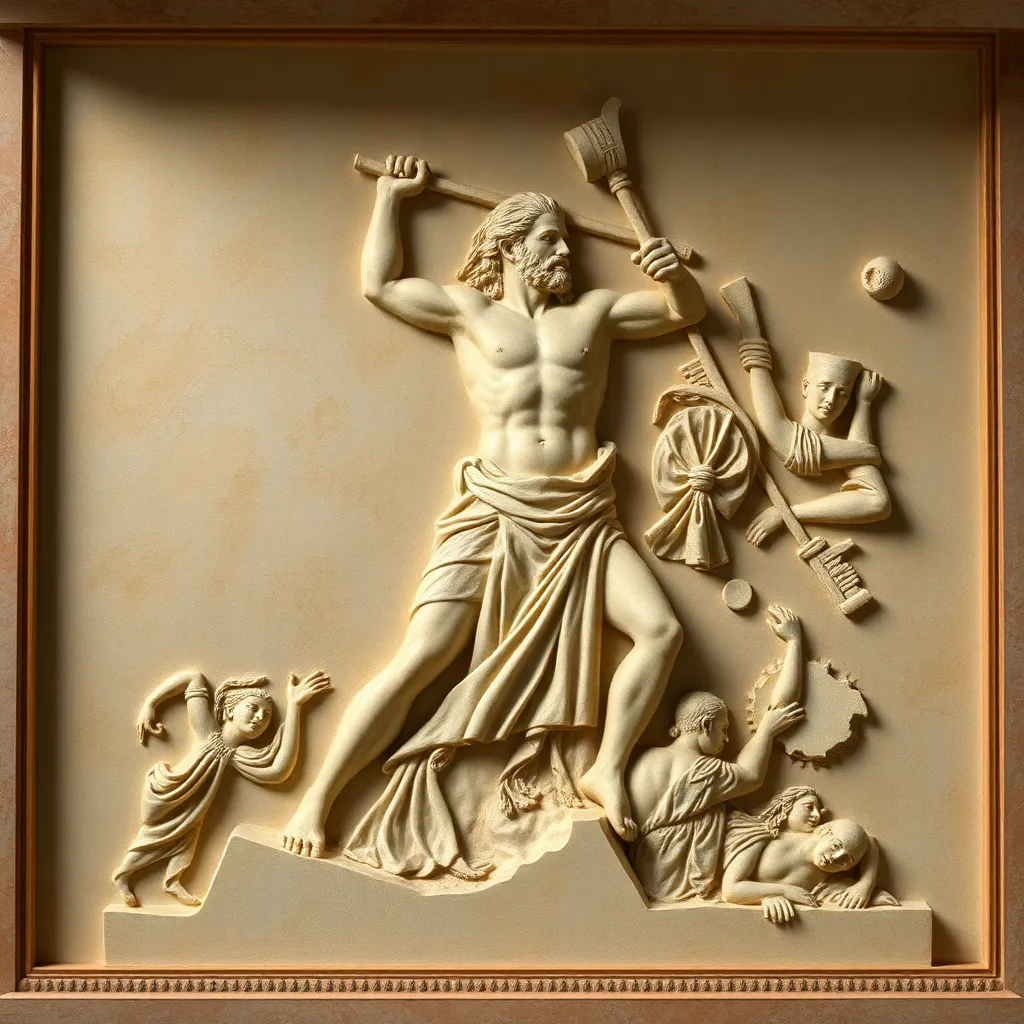The Iliad’s Representation of the Heroic Ideal
I. Introduction
“The Iliad,” attributed to the ancient Greek poet Homer, is one of the most significant works of literature in the Western canon. Composed in the 8th century BC, it tells the story of the Trojan War, focusing on the conflict between the Greek hero Achilles and the Trojan prince Hector. This epic not only relates a tale of war and heroism but also delves deeply into the values and ideals that shaped ancient Greek culture.
At the heart of “The Iliad” lies the concept of the heroic ideal, a set of values that include bravery, honor, and the pursuit of glory. This ideal was not merely a personal aspiration but a societal expectation that dictated the actions and reputations of warriors in ancient Greece. This article aims to explore how “The Iliad” portrays the heroic ideal through its characters, themes, and moral complexities.
II. The Concept of Arete
Arete is a fundamental concept in Greek philosophy, often translated as “virtue” or “excellence.” In the context of “The Iliad,” arete refers to the qualities that define a true hero: courage, strength, wisdom, and the ability to achieve greatness in battle. Arete serves as the foundation for the heroic ideal, guiding the actions and aspirations of characters within the epic.
Many characters in “The Iliad” exemplify arete, showcasing the traits that define heroism:
- Achilles: Known for his unmatched prowess in battle, Achilles embodies arete through his fierce combat skills and physical strength.
- Hector: As the defender of Troy, Hector displays arete through his bravery in protecting his city and family, balancing his warrior duties with his role as a father and husband.
- Ajax: A formidable warrior, Ajax represents arete through his resilience and loyalty to his comrades, emphasizing the importance of solidarity among heroes.
III. The Role of Honor and Glory (Kleos)
Kleos, often translated as “glory” or “fame,” is a central theme in “The Iliad.” This concept underscores the importance of honor in the lives of the characters, driving their motivations and actions. In the heroic code, kleos is earned through great deeds, particularly in battle, and it is the pursuit of this glory that often propels heroes into conflict.
The quest for kleos is a driving force for many characters in “The Iliad.” For instance:
- Achilles: His refusal to fight after being dishonored by Agamemnon leads to devastating consequences, illustrating how crucial honor is to his identity and motivation.
- Hector: He fights valiantly against the Greeks to protect his city and earn honor not only for himself but for his family, reflecting the deep ties between personal glory and communal pride.
IV. The Duality of Heroism
The characters of Achilles and Hector represent contrasting ideals of heroism, highlighting the complexities of the heroic narrative in “The Iliad.” Achilles embodies the archetype of the wrathful hero, driven by personal glory and a desire for vengeance. In contrast, Hector is portrayed as the noble defender, concerned with the welfare of his family and city.
This duality reveals the moral dilemmas faced by heroes, emphasizing that heroism is not merely about strength and glory but also about the consequences of one’s choices. The impacts of these choices are profound:
- Achilles’ rage leads to the deaths of many, including Hector, showcasing the destructive nature of unchecked pride.
- Hector’s commitment to his family ultimately leads to his tragic demise, raising questions about the price of honor and duty.
V. The Influence of Fate and the Gods
In “The Iliad,” the role of fate is paramount in shaping the destinies of heroes. The characters frequently grapple with the tension between free will and predestination, as their fates are often determined by the whims of the gods.
The interaction between divine beings and human heroes adds depth to the narrative:
- The gods frequently intervene in the battles, altering outcomes and influencing the choices of heroes, as seen when Athena assists Achilles.
- Fate is depicted as an unavoidable force, with many characters resigned to their destinies, such as Hector, who knows his end is near yet continues to fight bravely.
VI. The Consequences of Heroic Actions
The aftermath of heroic deeds in “The Iliad” reveals the profound consequences of pursuing the heroic ideal. While characters may attain glory, they often face devastating personal losses and societal repercussions.
Some of the consequences include:
- The loss of life and suffering caused by war, as seen in the devastation of Troy.
- The emotional toll on families and communities, highlighted by the grief of Achilles over Patroclus’ death.
- The moral ambiguity of heroic actions, prompting reflections on the true cost of honor and glory.
VII. The Evolution of the Heroic Ideal
“The Iliad” reflects the evolving societal values regarding heroism. While the pursuit of glory remains central, the epic also critiques the consequences of this pursuit, indicating a shift towards a more nuanced understanding of heroism.
Comparisons with other epic works, such as “The Odyssey” and Virgil’s “Aeneid,” illustrate how the heroic ideal adapts to changing cultural contexts:
- In “The Odyssey,” heroism is linked more closely with intelligence and cunning rather than brute strength.
- Virgil’s “Aeneid” portrays a hero who embodies duty and sacrifice for the greater good, reflecting Roman values.
VIII. Conclusion
In conclusion, “The Iliad” presents a multifaceted representation of the heroic ideal, intertwining concepts of arete, kleos, and the influence of fate. The epic’s characters embody the complexities of heroism, illustrating both the glory and the tragic consequences of their actions.
The themes explored in “The Iliad” remain relevant in contemporary discussions on heroism, prompting reflections on what it means to be a hero in today’s world. As society continues to evolve, the enduring nature of the heroic ideal in literature and life serves as a testament to the timeless quest for excellence, honor, and meaning.




